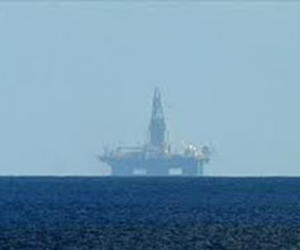Cuba, Bahamas push ahead with offshore oil plans
- Submitted by: manso
- Business and Economy
- 10 / 09 / 2010

Oct 8, 2010 - 12:05:25 PM.HAVANA (Reuters) - Plans in Cuba and neighboring Bahamas to develop offshore oil fields may open big new oil frontiers at the doorstep of the United States, but the Cuban project has sparked opposition in next-door Florida reflecting the usual antagonistic U.S.-Cuba politics.
Some Florida political leaders have asked U.S. President Barack Obama to find a way to stop Cuba's drilling, but so far the White House has stayed out of the issue. Cuban oil exploration plans continue on the island, where significant fresh drilling is expected to begin early in 2011.
Suggestions from U.S. lawmakers such as Senator Bill Nelson and Representative Vern Buchanan have included withdrawing the 1977 recognition of Cuba's claim to part of the Gulf of Mexico and pressuring Spain to curb Spanish oil giant Repsol YPF , which is leading the Cuba exploration.
Florida, mindful of its $60 billion-a-year tourism industry, has successfully kept U.S. offshore exploration well away from its shores. In the oil-rich Gulf of Mexico, drillers are allowed no closer to the state's west coast than 125 miles (200 km). Still, some of Florida's Panhandle beaches were stained by oil from the massive BP Gulf spill this summer.
Buchanan, in a letter to Obama, said Cuba will drill in water deeper than the BP well, which was about 5,000 feet (141 metres) down, making it "extremely difficult" to control a spill. "It is critical that Florida's unique coastline environment and its population be protected," he said. Maritime boundaries with Cuba and Bahamas are about 50 miles (80 km) distance from South Florida, meaning they can drill closer to the state than U.S. operators. In the Bahamas, the Bahamas Petroleum Corp has leased more than 2 million acres offshore and has a joint venture in place with Norway's Statoil, but this project so far has received little mention in Florida.
The stakes are high in both countries. Cuba believes it has at least 20 billion barrels of oil offshore, while estimated reserves for the leases controlled by Bahamas Petroleum have gone as high as 17 billion barrels. The U.S. Geological Survey has estimated Cuba has 5 billion barrels of oil.
Representative Ileana Ros-Lehtinen of Florida was quoted as saying last week by The Miami Herald. Cuba's oil development plans are advancing however, Repsol has contracted a Chinese-built drilling rig from Saipem Corp., a unit of Italian oil company Eni SpA, that is expected in Cuba in the first quarter of next year. Once in place, state-owned Cuban oil company Cupet has said the Scarabeo 9 rig will drill seven wells by the end of 2012 for some of the various companies with offshore Cuba leases.
None of the companies are American because the longstanding U.S. trade embargo prevents them from doing business in Cuba.
Nonetheless, the U.S. oil industry has begun taking interest, as signaled by an August visit to Havana by a delegation from the Houston-based International Association of Drilling Contractors.
By Jeff Franks
Source: www.thebahamasweekly.com/publish/international/
Comments